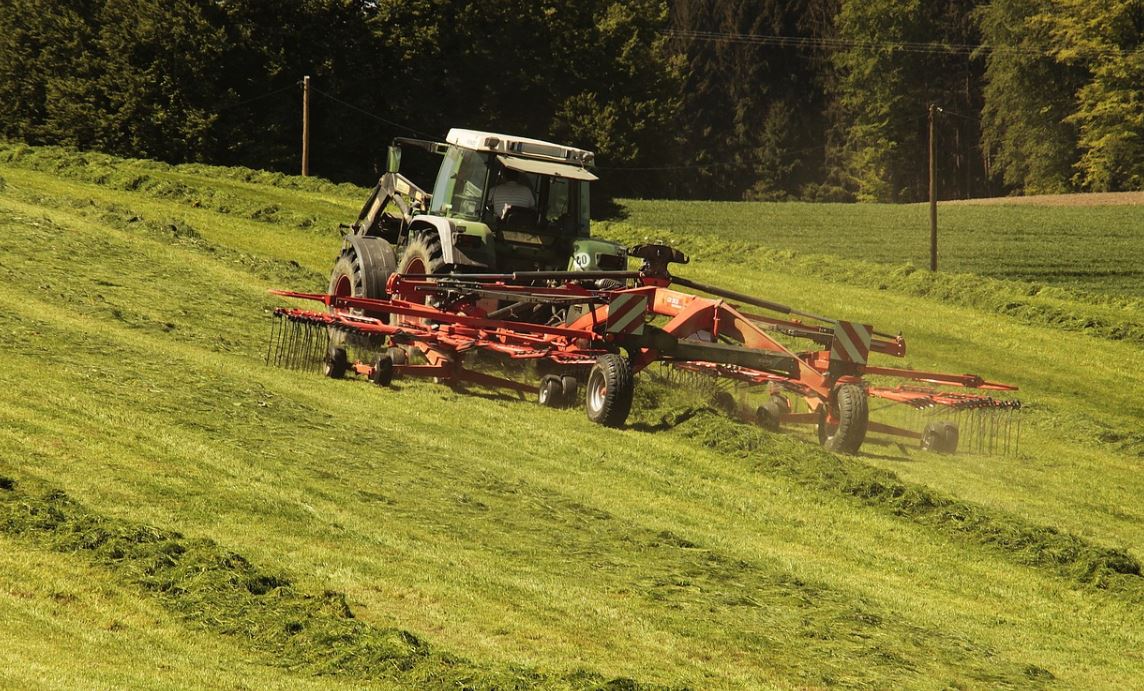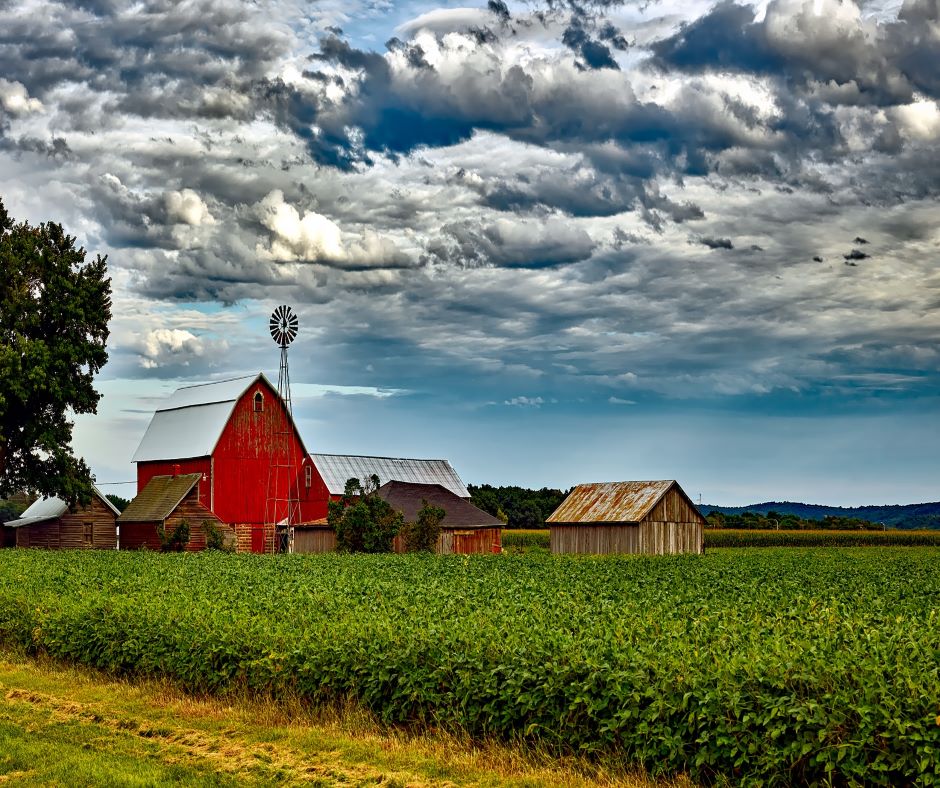Inheriting land is an opportunity to be grateful for, but it is a huge undertaking. Your options for how to handle your new property are endless. Your decisions largely depend on if others are sharing in the inheritance, and if they have the same goals as you do.
Depending on your situation, there are five main options to choose from when dealing with tillable or recreational properties. If you are inheriting land you can lease it to farmers, lease it to hunters, sell it, harvest the timber, or enjoy it for yourself.
Leasing to hunters is an excellent way to generate passive income and keep an active presence on your land if you don’t live nearby. Land that sits vacant and stays unoccupied for months at a time is much more susceptible to trespassing and vandalism. Keeping game populations in check by leasing to hunters is also a good way to protect crops being farmed by yourself or others.
Leasing to Farmers
If you inherit tillable land but don’t have much farming experience yourself, you can lease your property to other farmers. There are always farmers looking to lease tillable acres where they can grow more cash crops like corn, soybeans, or wheat. By allowing them to do so, you are creating a passive source of income while having someone else maintain your property.
Allowing farmers to work the land helps current pastures from being overtaken by undesirable grasses, shrubs, and trees. Also, if you don’t live near the property, you can be confident it is being actively monitored by someone else who is invested in its well-being.
Crop Share Leasing
A crop share lease can be organized in multiple ways. It is difficult to manage if you (the landowner) don’t have any farming experience, however, if you have experience it can be a great way to minimize your inputs and still have a share of the crops being produced. In a crop share lease, the owner and tenant are splitting both the production costs and profit.
The location of your farm and the crop that is being produced dictates common share percentages. Some crops are more profitable than others. You could form a normal crop share lease where the decisions, expenses, and crops produced are all split 30/70. That means the owner covers 30% of expenses and receives 30% of the crops produced. The farmer is responsible for the other 70%.
Cash Rent Leasing
Cash rent is what comes to mind when most people think of a lease. The agreed upon amount of cash is paid upfront, and the farmer assumes all risks and rewards. This is preferred by most farmers as they have more to gain from a profitable crop.
As the landowner, you don’t have to wonder how much money you’ll make from the lease over the course of the year like in a crop share. Cash rent is the most common type of farming lease agreement across the country and is generally the easiest lease to manage.
Leasing to Hunters
Another group to consider leasing your land to is hunters. It doesn’t have to be one or the other. You could lease your new land to farmers and hunters at the same time! The right group of hunters will be just as interested in improving your land’s habitat and wildlife populations as you are.
If you will allow them to, many hunters will want to help improve your property’s ability to house more game like deer, turkey, and small game. You may make it a part of your lease agreement that members could participate in habitat improvement projects like controlled burns, timber stand improvement, or food plot installations if you wanted to. Just make sure you are legally protected in all events.

-Taxes
Property Taxes- Once you inherit the property you will become responsible for any property taxes that are assessed on the property- current and past due. A transfer of real estate will usually result in a reassessment of the property, resulting in higher taxes for the new owner.
Estate taxes and inheritance taxes- Sometimes are called “death taxes.” If there are outstanding unpaid estate taxes for the property you may want to work with an attorney so you can learn if it impacts you and the property you inherited.
Capital gains taxes- If you sell the property later at a gain, you will have to pay taxes on that gain.
-Mortgages
Any remaining liabilities and liens on the property will now become your responsibility.
-HOA or Community Fees
If the property is in a planned community, there will likely be homeowners’ association (HOA) fees related to the property. In addition to the current HOA fees, you will be responsible for previous unpaid HOA fees.
-Insurance
As a landowner you should carry insurance on the property to protect you from liability and to cover the risk of loss to any homes or other structures.
-Ongoing Maintenance
Maintaining the property is now your responsibility to upkeep and maintain from potential accidents even if you do not live close to the property.
Selling the Land You’ve Inherited
Regardless of your intentions with your newly inherited land, your first step should be getting an appraisal by a knowledgeable realtor like ours at Base Camp Country Real Estate. Knowing the property’s value lets you make the most informed decision about what to do with it.
If you decide your property ownership goals don’t align with you keeping the property yourself, our agents at Base Camp Country are more qualified than any to help a transaction go smoothly. Agents are state specific to ensure they best understand the market and community you are selling in. They are on top of market trends and know every option that could benefit you as a seller.
Marketable Timber
Private and state foresters can be utilized to appraise the value of your property’s timber. They can walk you through the property and explain how each species either benefits or offers no use to you. If you should decide to have some timber cut, groups can be hired to manage the entire process from identifying, marking, cutting, and removing trees.
If you have a significant timber value, it can benefit you in two ways. First, you can harvest the timber, pocket the cash, and carry on with other land goals you have. Second, you can include the recent timber appraisal as a selling point to interested buyers should you put the land on the market.
Enjoy the Land Yourself
If these options don’t sound appealing to you, there is one other. Keep the land! If you don’t feel that selling or leasing your property is the right move, hold onto it until you figure out the path you want to take. It is much easier to be the seller than it is to be the buyer, and properties gain value over time.
When inheriting land, the options that can suddenly be put in front of you are overwhelming. If you don’t have a plan or need to learn more about the course of action you want to take, talk to professionals that have a reason to see you succeed. If you decide to lease or sell your land, our team at Base Camp Country Real Estate makes the process as easy as possible.
